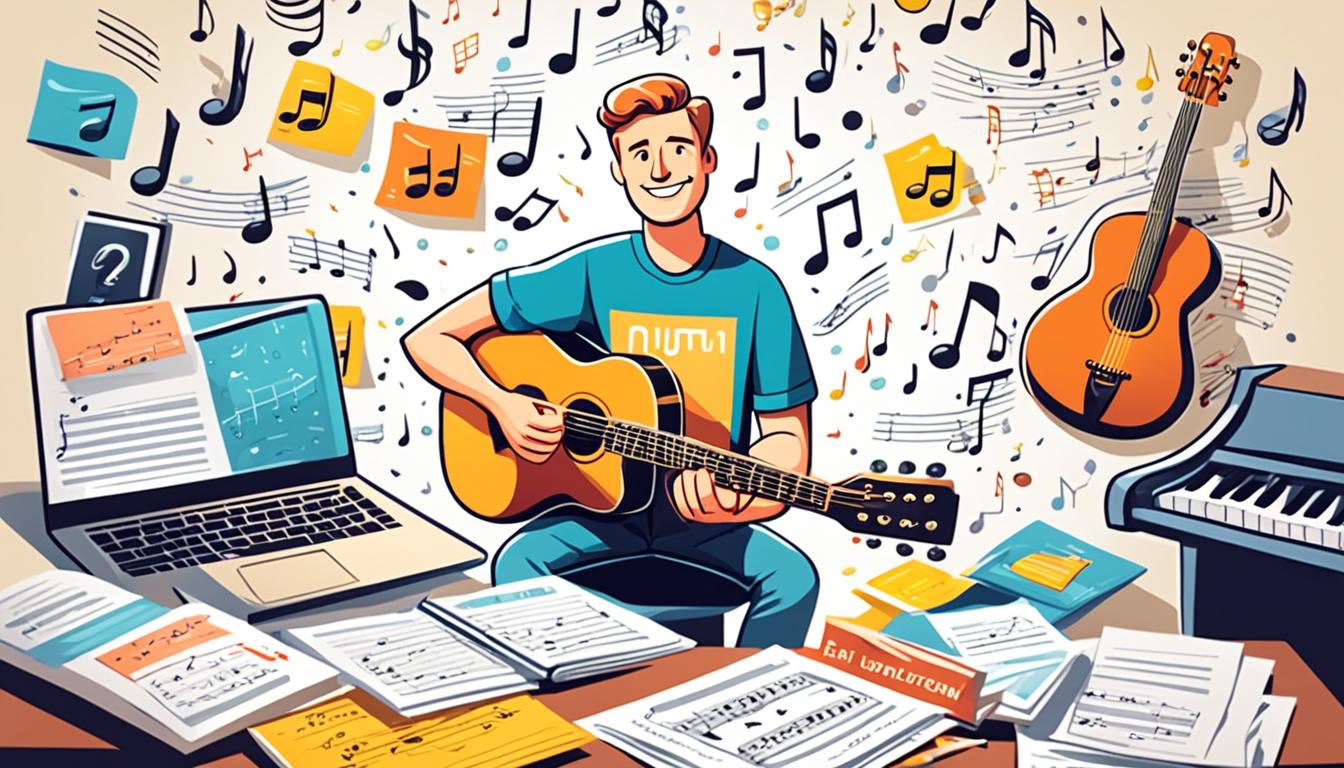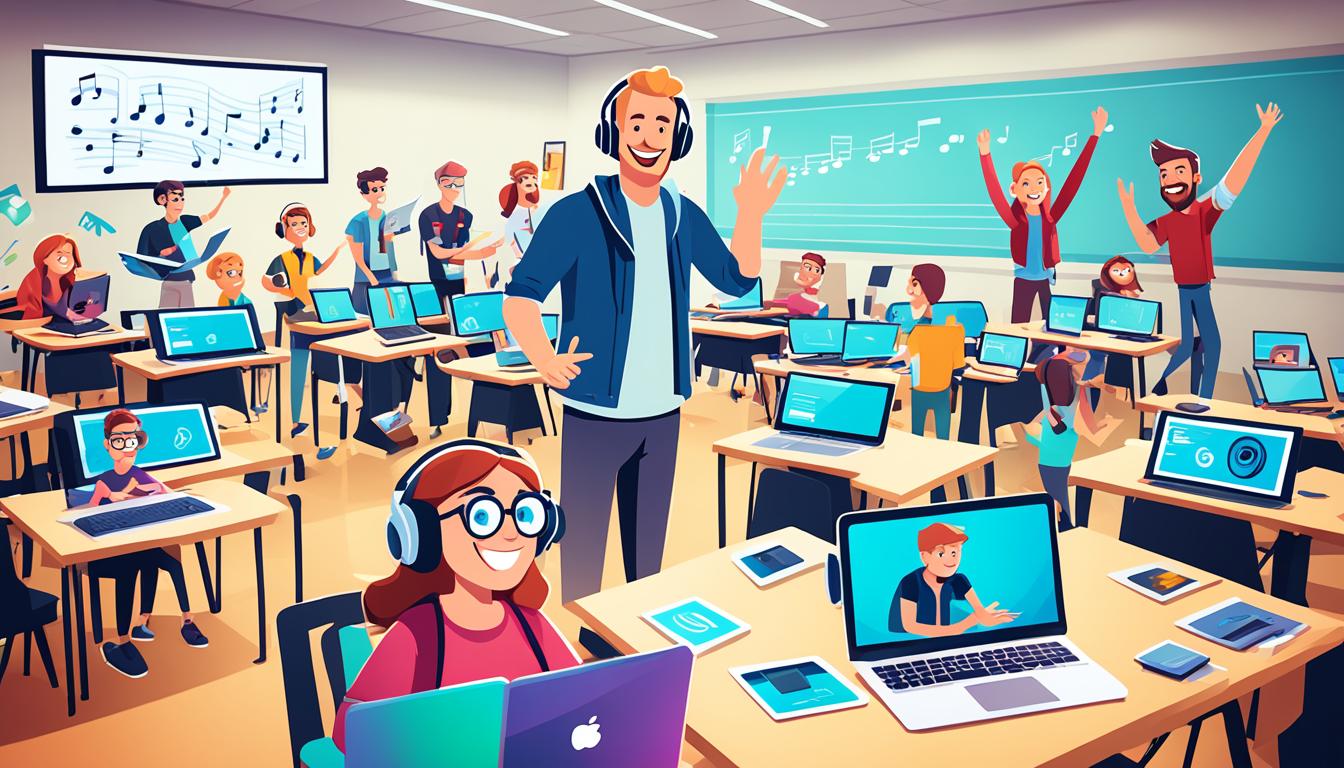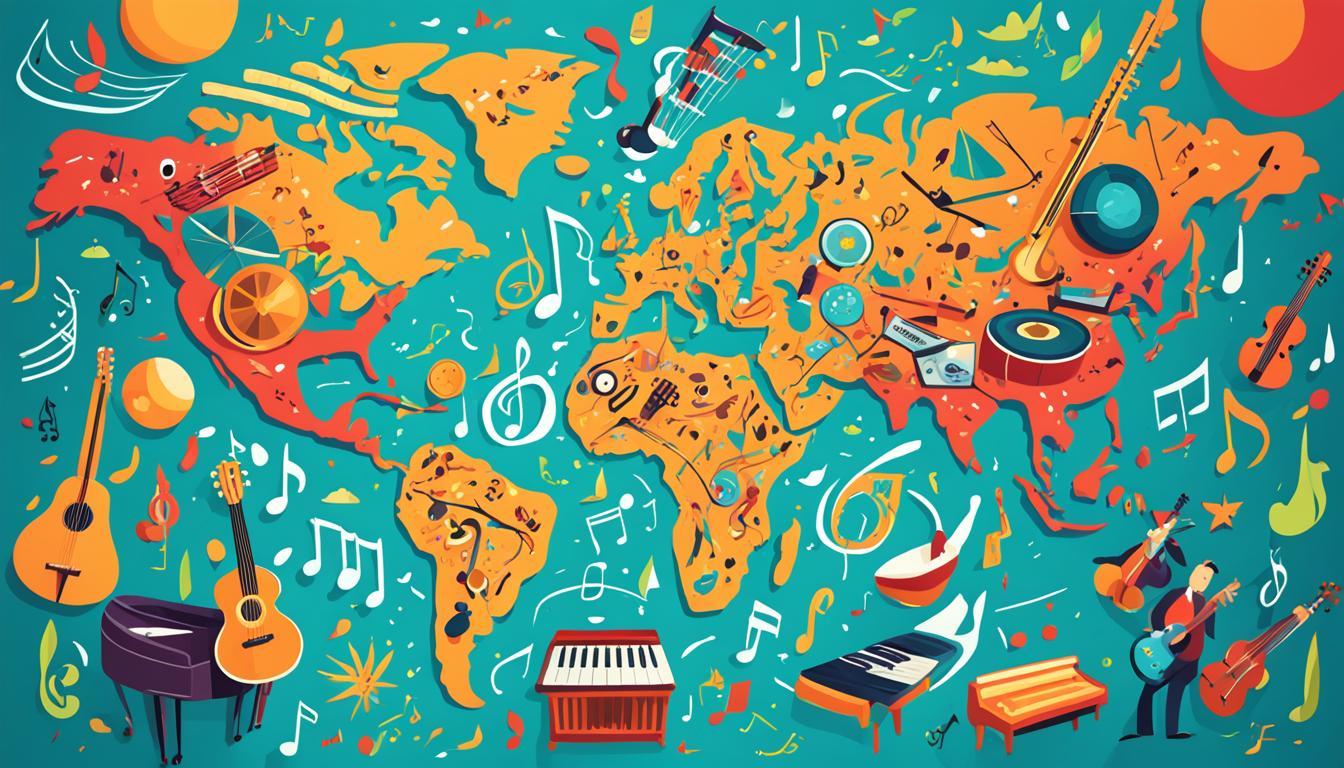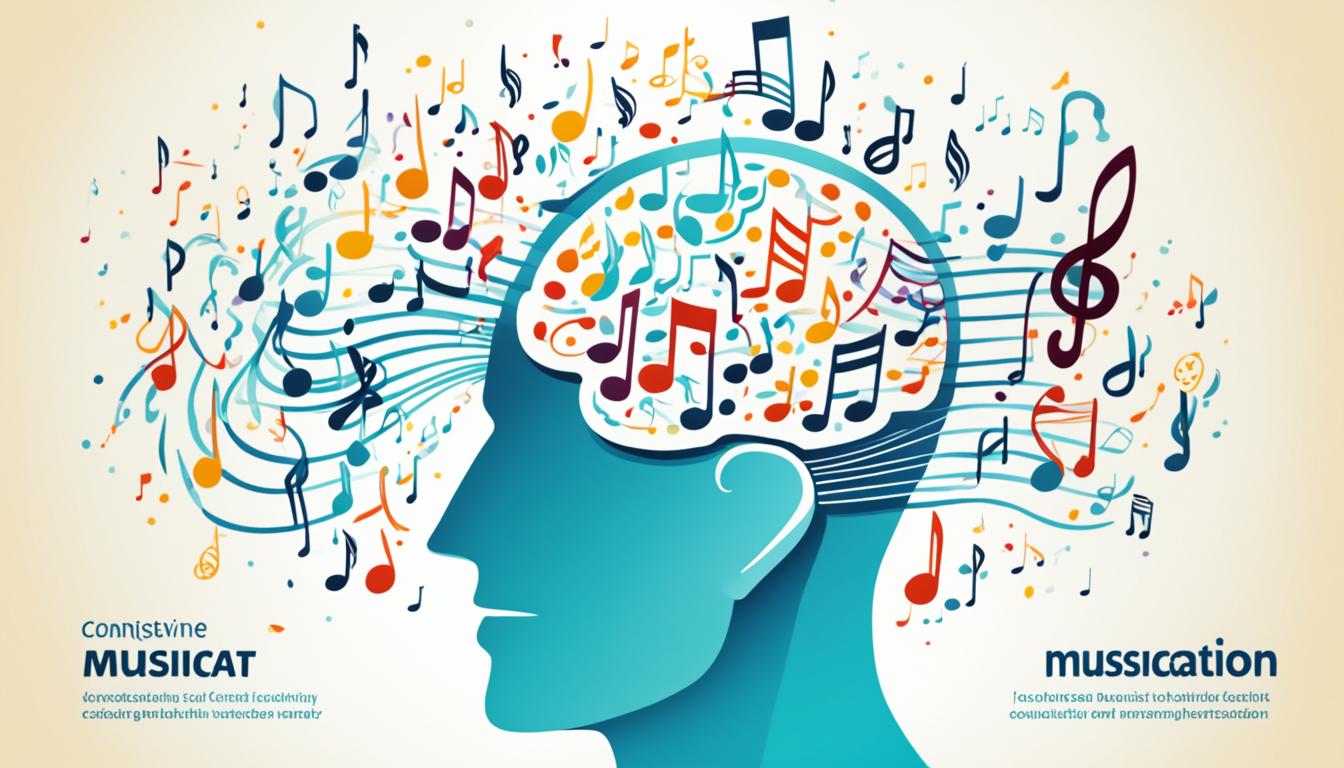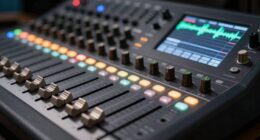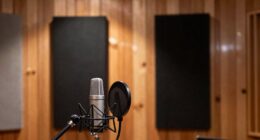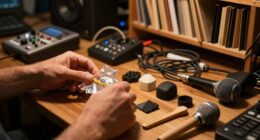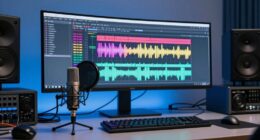Have you ever seen a musician play their instrument with such ease and skill, captivating everyone? It’s truly amazing and makes you wonder how they got so good. Achieving such skill on any instrument takes dedication, consistent practice, and plenty of time.
Music teachers say mastering an instrument calls for 1 to 3 hours of daily practice over 10 to 15 years1. It’s a long journey but very rewarding. One that asks for your commitment and regular effort.
Learning to play string instruments like the violin or cello takes more time than others, like the piano1. But, the joy found in playing a challenging instrument is worth every moment.
In the USA, students usually start learning instruments like woodwinds in 5th grade, around age 10 or 11. Piano and strings are often started even earlier, at age 5 or 61.
Learning percussion takes years to master complex rhythms and to play a range of instruments1. Brass players have to work on their mouth muscles and learn special techniques, which also takes years1. The horn or “French Horn” is seen as the hardest brass instrument to learn1.
Woodwind and brass players use air from their lungs to control their instruments. It takes a lot of practice to get the air control right for making sounds1. The saxophone is easier for beginners because it’s designed to help with finger placement. Other woodwinds demand a good understanding of reeds1.
Playing the piano well often takes lots of time because of the high standards expected. You have to memorize music, play with others, and master using the pedals1. The pipe organ is also tough because you must use multiple keyboards and pedals at the same time1.
Choosing an instrument comes with challenges, but there are effective ways to improve your skills. We will look at the best strategies for getting better at your instrument. This involves setting goals, practicing wisely, and staying motivated.
Key Takeaways:
- Mastering a musical instrument typically requires 1 – 3 hours per day of study, practice, and rehearsal over 10 – 15 years.
- String instruments like the violin, cello, viola, or string bass generally take longer to master compared to instruments like the piano.
- Students in the USA typically begin learning band instruments in the 5th grade, around age 10 – 11, while piano and string instruments are often started earlier, around age 5 or 6.
- Percussionists, brass musicians, and woodwind players require years to develop the necessary skills for their respective instruments.
- Piano mastery and playing the pipe organ are considered particularly challenging.
The Importance of Regular Practice
Regular practice is crucial in learning to play a musical instrument well. It helps musicians become proficient and expert in their craft. Through practice, they can refine their skills, strengthen their musicality, and become masters.
Practicing often is key to improving and making progress in music. A regular routine builds the habit of focus and discipline. It also improves muscle memory, making playing smoother. This is true for both beginners and advanced learners.
Beginner musicians are advised to practice at least five times a week, according to2. They should start with 15 to 20 minutes each day. Over time, they can practice longer, aiming for at least 30 minutes daily. Doing this daily strengthens muscles and improves skills steadily.
A place without distractions is best for practicing. This way, you can focus on your music completely2. suggests finding the best times for you to practice. Knowing when you learn best can help make practice more effective.
It’s also important to set goals for your practice, as per2. Break big goals into smaller, achievable ones. Hitting these smaller goals can motivate you and push you to keep going.
Practice should be purposeful, incorporating different techniques and exercises, says3. A varied routine tailored to your instrument can challenge you. Pushing yourself can speed up your improvement and make you a better musician.
Staying focused during practice is crucial. Minimize distractions and prepare mentally and physically3. suggests using mindfulness to deepen your connection with the music. This can improve your focus and skill.
Becoming excellent at an instrument requires time and patience2. reminds us that it’s a long journey. It’s important to be patient and persistent. Regular practice, dedication, and hard work pay off over time.
Learning from a music professional can be very helpful, according to23. Expert guidance can speed up learning and enhance your musical journey. They provide valuable insights and support.
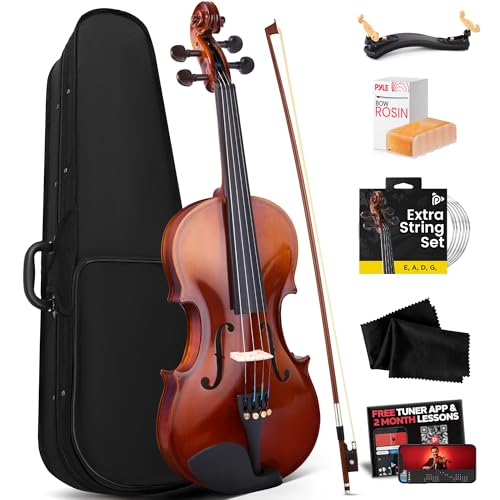
Pyle 1/4 Size Beginner Violin Starter Kit, Violin Starter Package with Travel Case & Bow, Extra Strings, Digital Tuner, Shoulder Rest & Cleaning Cloth for Students, Kids, Adults
ALL IN ONE BEGINNER KIT: Quarter size 1/4 violin plus bow, hard travel case, extra strings, shoulder rest,…
As an affiliate, we earn on qualifying purchases.
As an affiliate, we earn on qualifying purchases.
Recommended Practice Times Based on Skill Level
| Skill Level | Recommended Daily Practice Time |
|---|---|
| Beginner | At least 20-30 minutes, 5 days a week4 |
| Middle School Age | At least 30 minutes, 5 days a week (double if possible for serious learners)4 |
| High School/Adult | At least 30 minutes, 5 days a week (practice twice as much when feasible for those committed to advancement)4 |
In conclusion, regular practice is essential for mastering a musical instrument. Dedicated practice improves muscle memory, expands your repertoire, and betters your musicality. Embrace the discipline of practice, set clear goals, and find a routine that suits you. With hard work and commitment, your musical potential will be fully unlocked.

YAMAHA P71 88-Key Weighted Action Digital Piano with Sustain Pedal and Power Supply (Amazon-Exclusive)
Acoustic Piano Feel – Touch-sensitive keys allow for true expression and dynamic performance. The weighted action replicates the…
As an affiliate, we earn on qualifying purchases.
As an affiliate, we earn on qualifying purchases.
Setting Clear Goals
When you practice an instrument, having clear goals is key. This helps with making steady musical progress. Decide what you wish to achieve, like learning a song, mastering a technique, or getting better overall. This gives you a clear path and purpose when you practice.
Studies show that specific, achievable goals boost performance5. Split big goals into smaller steps. This makes learning easier to handle and lets you see your improvement. Every small victory grows your confidence and eagerness to keep going.
Use the SMART framework for goals. SMART stands for specific, measurable, achievable, relevant, and time-bound. Suppose you want better sight-reading skills. You might practice sight-reading for 10 minutes daily for six weeks6. Such a goal sets clear limits and a timeframe for your improvement.
Regular, focused practice is vital7. Shorter, more intense sessions work better than long, vague ones5. Regular practice, even if it’s just 15-30 minutes a few times a day, strengthens muscle memory and skill foundation. This approach avoids burnout, especially important for beginners.
Goals aren’t just about technique. They also involve your attitude as a musician. Mental rehearsal techniques, like picturing a perfect performance, boost how well you play5. Preparing mentally helps you face problems confidently. Your mindset is a big part of your music journey.
Also, incorporating technology into your routine can do wonders. Use digital metronomes and tuners for precise timing and tuning. Music apps offer interactive lessons, while recording software lets you hear and critique your play6. These tools help refine your practice and speed up progress.
Clear goals, steady practice, and useful tools move you towards your musical progress goals. Celebrate every step forward and enjoy the journey. Stay driven, attentive, and, most importantly, have fun!

Cheerock 7C Trumpet Mouthpiece – Gold Plated Brass Compatible with Beginners and Professionals – Trumpet Accessories
The trumpet mouthpiece is made of high quality brass, it is durable and can guarantee long-term use.
As an affiliate, we earn on qualifying purchases.
As an affiliate, we earn on qualifying purchases.
Smart Practice Strategies
Mastering a musical instrument requires smart practice, not just any practice. To boost your growth, use smart strategies that follow the S.M.A.R.T. goals. This makes learning more effective.
The S.M.A.R.T. framework is about setting goals that are Specific, Measurable, Achievable, Relevant, and Time-bound. George T. Doran introduced this in 1981. Applying it to music practice helps you set clear goals and see your improvement.
For better practice, try using studio management tools like Fons by MakeMusic. These tools keep you organized and improve your practice habits.
When setting music goals, be detailed. For instance, practice scales for 20 minutes a day. Or focus on increasing your vocal range daily. You might also spend 30 minutes mastering drum basics.
Using S.M.A.R.T. criteria in your goals lets you track how well you’re doing. It helps you focus on specific skills like scales, vocals, and drumming. This framework guides you to keep getting better.
Try different ways to practice. Record your sessions to find areas to improve. Reviewing your practice helps perfect your technique.
Keeping focused during practice is key. Practice when you’re most alert. Imagining fun ways to practice also makes learning last.
Getting feedback is helpful, too. Your music teacher or friends can offer insights. Their feedback improves your skills and motivates you.
Use these smart strategies to enhance your practice. Apply the S.M.A.R.T. framework, try new methods, stay focused, be creative, and get feedback. This will help you reach your music goals.
| Smart Practice Strategies | Benefits |
|---|---|
| Implementing the S.M.A.R.T. framework | Clear objectives and progress tracking8 |
| Using studio management tools like Fons by MakeMusic | Improved organization and optimized practice routine8 |
| Setting specific goals for practicing scales, vocal exercises, or drumming techniques | Targeted skill development within designated timeframes8 |
| Experimenting with different practice methods | Identifying areas for improvement and making necessary adjustments8 |
| Regulating energy and attention during practice | Maximized focus and productivity8 |
| Using imagination to make practice enjoyable and engaging | Enhanced learning experience8 |
| Seeking feedback from others | Valuable insights and motivation8 |

Ueteto Digital Metronome for Piano, Guitar, Drum, Violin Practice, Metronome with Human Voice and Headphone Jack, 9 Rhythms, 40-208 BPM, Timer Function for Musicians
𝐃𝐢𝐠𝐢𝐭𝐚𝐥 𝐌𝐞𝐭𝐫𝐨𝐧𝐨𝐦𝐞 𝐎𝐧𝐥𝐲:This metronome for piano features a clear LCD display for easy reading, 9 rhythm patterns, 10…
As an affiliate, we earn on qualifying purchases.
As an affiliate, we earn on qualifying purchases.
The Role of Teaching Yourself
Having a music teacher is important, but teaching yourself has benefits too. You can take notes in lessons and record your practice for self-review. Watching top performers and reading music books can also help. This way, you learn more than just what formal lessons offer.
Learning from videos has become a favorite way to teach yourself. Sites like YouTube have many tutorials and performances to watch. Try to copy the techniques you see and explore different music styles. This can expand what you know and can play.
Books on music teaching are great for learning on your own. They give insights into how to practice well and learn effectively. You can read about famous musicians to get motivated. This adds so much to your music journey.
Teaching yourself doesn’t replace having a teacher. It’s about adding to what you’re learning in class. Using videos and books can make you understand music better. You get to explore and express yourself in new ways.
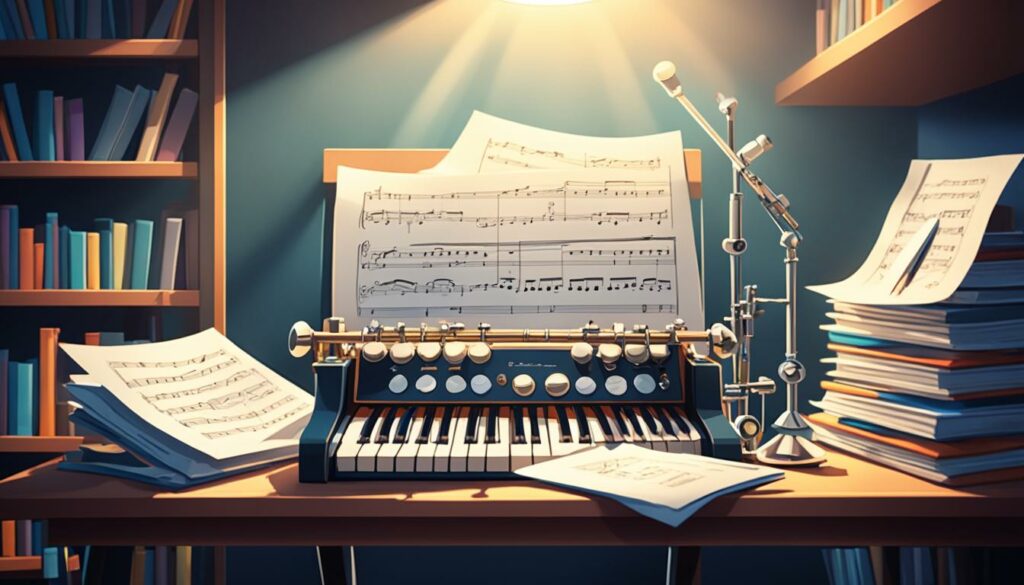
Statistical data from Link 1: Gregg Goodhart says learning a skill well takes lots of time, repeating things, and good coaching. If you’re learning on your own but have guidance, you’ll do way better than others9. Gregg Goodhart’s Practice Coaching helps learners of all levels for eight weeks. These sessions improve your practice skills a lot9. His coaching led one student to make amazing progress in just eight weeks9. Courses like “The Art and Science of Learning Music” could make practice more efficient9. Focused practice that involves repeating, changing, and reflecting helps musicians improve faster9. Teachers can use science to help students build skills faster by understanding how practice changes the brain9. Repeating something thousands of times make you quicker and more accurate in music9. Teachers using neuroscience can teach better and help students learn more effectively9. Gregg Goodhart offers workshops to improve teaching and practicing for teachers and students9.
Finding Inspiration and Motivation
To stay on track, finding inspiration is key. Share your progress, play for others, or imagine an audience. Dig into other music, art, and creativity to fuel your own musical journey.
Statistical data10 suggests short, daily practice sessions boost motivation. Take breaks if you’re not feeling it. After all, music should be fun10.
Divide your practice into smaller tasks to avoid feeling overwhelmed. This can make practicing more manageable10. Being present while practicing makes your time more effective10.
Remember to take breaks to fight off tiredness. This helps improve your skills without burning out10. For kids, make learning fun and engaging to keep them interested10.
Use personal reminders of why you started your musical journey to find inspiration during low times10.
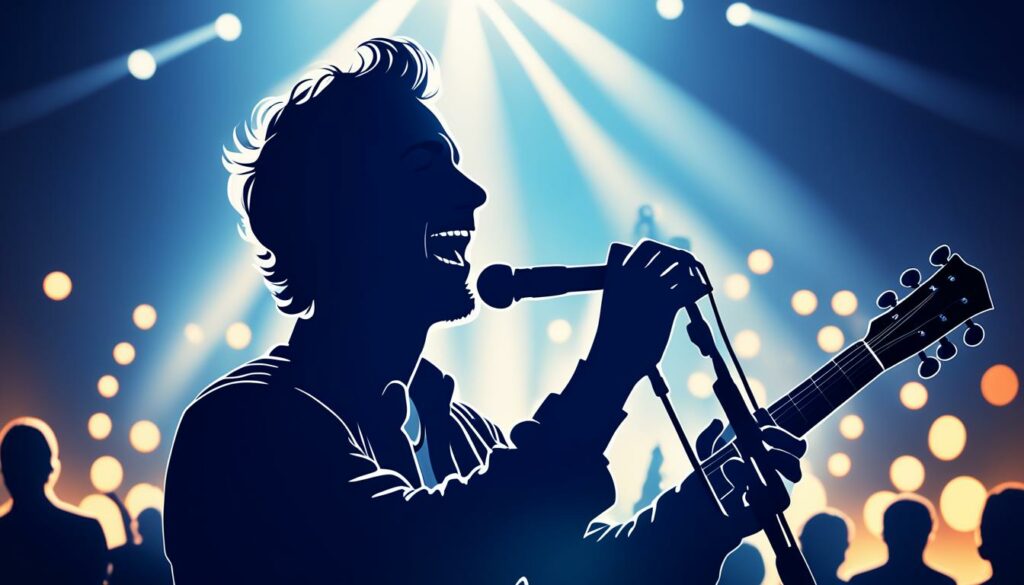
To improve and enjoy your music, seek out inspiration and use smart practice methods. This way, you’ll stay motivated and grow as a musician.
Tracking Your Progress
Keeping track of your progress helps a lot when you’re learning a musical instrument. It keeps you going and lets you see how much you’ve learned. A great way is to keep a music journal or make a vlog. In it, you can write down your practice times, talk about hard parts, and think about how you’re getting better. Going back to what you wrote or videos you made gives you a happy reminder of your progress. It’s a good way to boost your confidence and shows that hard work pays off11.
![]()
Writing about your practice, the mistakes you’ve made, or your big wins helps you see how far you’ve come. It’s like having a story of your growth that you can see and touch, giving your journey shape and keeping you inspired11.
Using modern tech is another handy way to keep track of how you’re doing. There are apps and programs that let you record your sessions, look at your playing, and watch your progress12. These tools offer insights into your improvement, helping you see where to focus next. Seeing your progress clearly motivates you to aim higher.
Tracking also helps in setting and checking on your goals. By seeing your progress, you can make real targets and work at hitting them. The goals can be as specific as learning a song or getting better overall. Having clear goals helps you know where you’re going and keeps you moving forward deliberately11.
Benefits of Progress Tracking
Keeping an eye on your progress brings many good things:
- Boosts motivation: Watching your progress gives you solid proof you’re getting better, which makes you want to keep at it.
- Identifies areas for improvement: By looking at your practice and progress, you can see what you need to work on to play better.
- Measures goal attainment: You can check your improvement against the goals you set, showing if you’re on the right path or need to adjust.
- Builds confidence: Seeing how much you’ve improved builds your trust in your abilities. It shows how much you’ve achieved and the potential to grow more.
Remember, tracking your progress is about your own journey. Don’t compare yourself to others; focus on your growth and celebrate your achievements as they come. Use it as a way to keep motivated, find places to get better, and enjoy getting to master your instrument11.
| Benefits of Progress Tracking | Statistics |
|---|---|
| Boosts motivation | 11 |
| Identifies areas for improvement | 11 |
| Measures goal attainment | 11 |
| Builds confidence | 11 |
The Transferability of Practical Skills
Learning to play an instrument teaches you skills you can use in different parts of your life. It helps you get better at being disciplined, focused, and solving problems. These skills can help you do better in school, at work, and in getting along with people. Thinking of music as art instead of a task can make you more positive. This attitude can help you when you’re learning new skills13.
Kids who play instruments often do better in math and language arts13. Practicing an instrument helps your brain work better. It can make your memory, attention, and problem-solving skills stronger13. Playing an instrument can also make you better at planning and making decisions, which helps in school13. It can help you remember things, which is helpful for subjects like history and science13.
Music isn’t just good for your brain; it’s also good for your feelings. It can help you get along better with classmates and teachers13. Making music helps lower stress and makes you feel happier by releasing happy hormones13. To be good at an instrument, you need to keep at it. This kind of effort can make you more determined and successful in your studies13. Overall, music helps students grow in many ways13.
Music education teaches skills that are useful in other parts of life. Today’s job market is changing because of new technology and global connections. This changes the skills that are important to have14. Skills like working well with others and being able to communicate are very important but aren’t always taught in school14.
It’s important to work with experts to learn skills that will help you get a job14. Being good with technology is also important for coming up with new ideas14. Schools should teach skills like how to manage money, understand feelings, and make choices. These skills help students deal with the fast-changing world14. Using projects, internships, and technology in teaching can help make these skills part of learning14.
Entrepreneurs need skills like understanding money, online marketing, how to negotiate, and manage projects15. Learning by doing, like in auto repair or cooking classes, helps you understand things better. Being active in learning helps you remember and use what you learn15. Learning practical skills shows you how to use what you learn in real life15. Activities that require you to solve problems or work with others teach you important skills15. Sometimes, schools might not have enough resources for this kind of learning15.
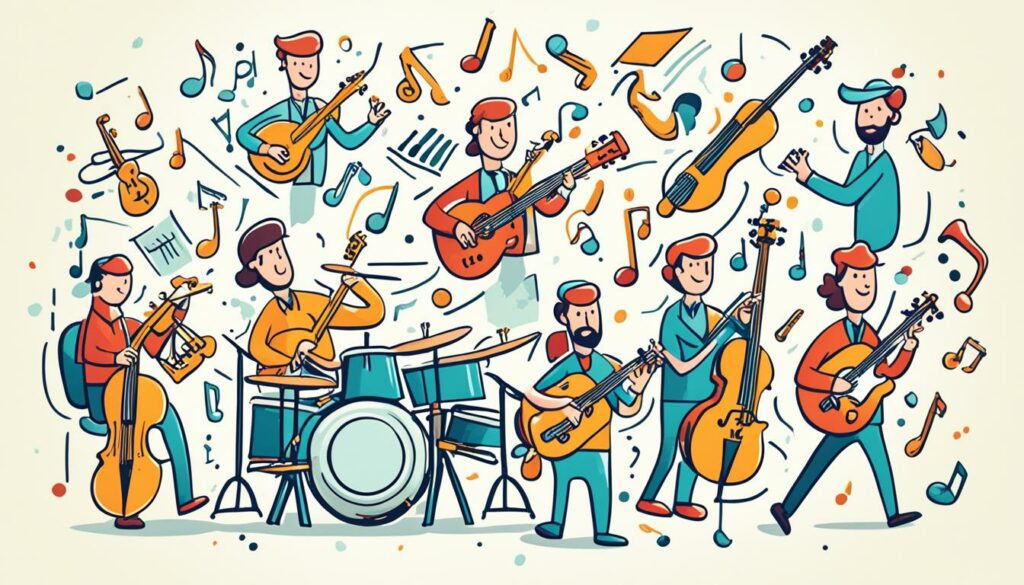
“The skills you develop while practicing an instrument can be applied to various areas of life.”
| Transferable Skills | Areas of Application |
|---|---|
| Discipline | Academics, work, personal life |
| Focus | Problem-solving, decision-making |
| Positive mindset | Learning any skill |
The Optimal Duration for Practice Sessions
Finding the right mix of practice time and quality is key for improving your skills. The best length for practice times depends on your level, goals, and what you like. Let’s look at some advice and stats to get the most from your practice.
Beginners to Intermediate Players
Beginners should practice for about 15 to 30 minutes a day. This time helps with slow, steady progress and building endurance while learning the basics of your instrument.
Intermediate players should aim for 30 to 45 minutes daily. This helps improve your abilities, try new techniques, and learn more songs16. Focus on specific skills, the beauty of the music, and what needs to get better during this time.
Advanced Players
Advanced players will need longer practice times. Those aiming for music scholarships or a career in music should practice at least 45 minutes daily. Up to 90 minutes is better for deeper work16.
Music students in college often practice 2-3 hours a day, almost every day. Professors might set certain practice goals for their students16.
Finding the Right Balance
Just practicing a lot isn’t enough to master music. Research shows that practicing in a focused way is a big reason for differences in musical skill. Other factors like genetics also play a role17. So, combining practice time and quality with goals and focused practice is essential.
For those who are very advanced, it’s better to scatter your practice times across the day. For instance, pianists should take breaks to avoid getting tired and to think over what they’ve learned18.
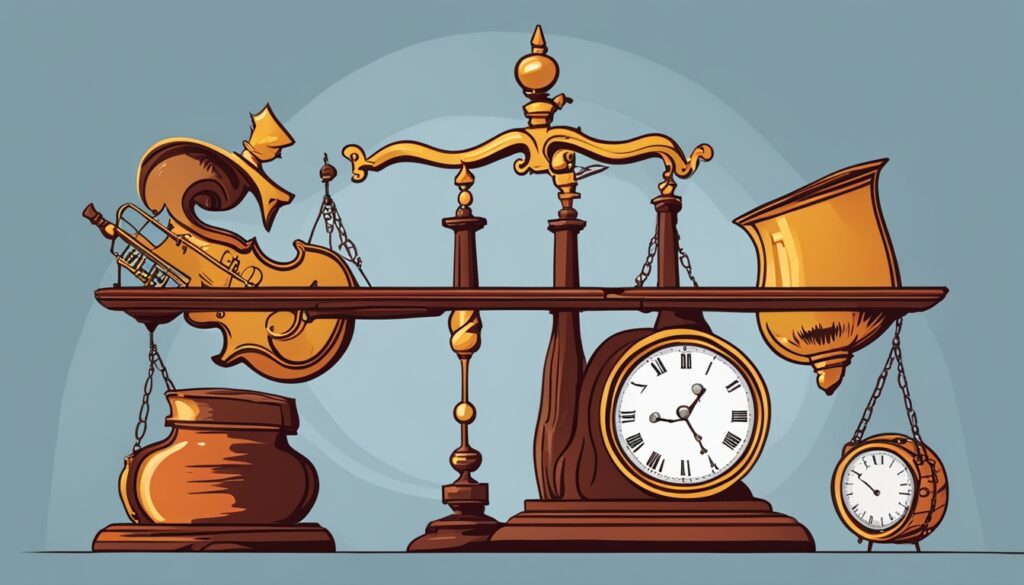
Practice Duration for Enjoyment
If you’re playing music for fun, it’s still good to practice regularly. Practicing for 20-30 minutes, 4-5 days a week, will keep you moving forward and enjoying your instrument16.
Tools to Enhance Practice
There are lots of tools to help musicians practice better. Keeping a notebook or diary is recommended for tracking your progress18. Technology can also help organize and maximize practice time. Apps like Modacity and Better Practice offer timers, reflection, and goal tracking, while The Practice Planner Pro gives personalized plans for improvement18.
By choosing the right practice times, focusing on quality practice, and using tools, you can boost your musical journey.
Reference:
- Statistical data: Beginners are recommended to start with practice sessions of around 15 to 30 minutes a day to allow for gradual progress and building endurance. Middle school-aged students are advised to practice their instrument for 30 to 60 minutes at least 5 days per week, with more serious students practicing 6 to 7 days a week. High school students aiming for music scholarships or professional musicianship should practice a minimum of 45 minutes per day, with sessions up to 90 minutes allowing for more in-depth work. College students typically dedicate 2-3 hours of practice time per day, 5-7 days per week, often with a specific amount of practice time requested by professors. Casual musicians or those playing for fun are encouraged to make 20-30 minutes of practice a part of their routine 4-5 days a week. Quality of practice is crucial – focusing on specific techniques, musicality, and areas of improvement within the allocated practice time can yield better results. (Source:16)
Balancing Intensity and Duration for Advanced Players
As an advanced player, you’ve put in lots of time and effort to get better at your instrument. To keep improving, it’s key to balance how hard and long you practice. Adding certain strategies and techniques helps you get the most from your practice and see great results.
Setting specific goals is a key part of this balance. You might aim to perfect a difficult piece or get better at a certain technique. Having clear goals keeps you focused and eager during practice. For each goal, break it into smaller steps so you can steadily achieve them.
It’s also vital to plan your practice time smartly. Instead of practicing for long hours without a break, split your sessions into short, intense periods. This keeps your focus sharp in each session, making your practice more effective.
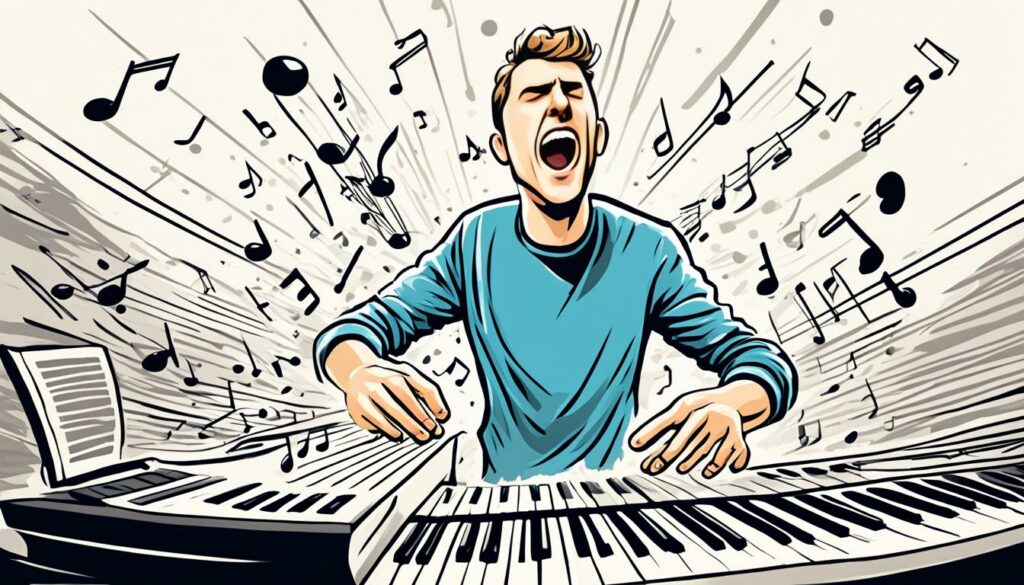
When planning your sessions, try using efficient practice methods like mental rehearsal. Imagine yourself playing perfectly, concentrating on every detail of your technique and expression. This mental prep boosts your performance and makes practice more productive.
Getting inspiration from other musicians is useful too. Listen to top performers on your instrument for insights and motivation. Study their style and techniques and use what fits your style and goals.
Recording your practice is key to keep on improving. Use a notebook or digital tools to track your progress. Regularly reviewing your practice helps you see what needs more work, and also to celebrate how far you’ve come.
Finally, balance is crucial in your routine. While practicing hard matters, you should also listen to your body and mind. Take breaks, do other activities, and rest to prevent burnout and stay well.
By balancing intensity and duration, you can keep advancing your skills. Remember to set goals, divide your time, use efficient methods, get inspired, track progress, and stay healthy. With focused, meaningful practice, you’ll reach your full potential as a musician.
| Statistical Data | Source |
|---|---|
| The early beginner stage requires 3–6 months to master fundamental mechanics with a total of around 50 hours played. | 19 |
| Continuing beginners typically spend about 2–3 years advancing through Suzuki Books 1 to 2 or 3, totaling around 500 hours played. | 19 |
| Intermediate students usually progress over 4–5 years through Suzuki Books 3 to 5 or 6, accumulating approximately 2,000 hours of practice. | 19 |
| Advanced students may require another 4–5 years to master advanced techniques and repertoire beyond Suzuki Book 6, with a total of about 5,000 hours of practice. | 19 |
| Expert players require a lifetime engagement in violin playing and practice encompassing an estimated 10,000 hours played. | 19 |
| Beginner guitar players should aim for 15-30 minutes of focused practice per session, multiple days a week. | 20 |
| Intermediate players can target an hour of practice per session as they refine their technique and expand their repertoire. | 20 |
| Advanced players may dedicate 1 to 3 hours or more daily to practice, dividing their sessions into focused segments such as technique exercises, learning new songs, improvisation, and music theory. | 20 |
| Engaging in focused learning strategies during practice sessions is crucial for effective skill development. | 20 |
| Utilizing tools like a metronome can help maintain a steady rhythm and tempo during practice. | 20 |
| Recording practice sessions and listening back can aid in identifying areas for improvement, such as timing issues or execution inconsistencies. | 20 |
| Having prior musical training can provide advantages when learning the guitar, but it is entirely feasible to learn without prior experience using resources like online tutorials and instructional videos. | 20 |
| Setting clear and quantifiable learning goals can serve as a motivator and help track progress effectively. | 20 |
| Establishing a practice schedule that aligns with daily routines and balancing time effectively are essential for consistent progress in guitar learning. | 20 |
| Beginner players, regardless of age, could start with once a week guitar classes lasting 30 minutes to an hour to establish a foundation and practice regularly between classes. | 20 |
| Intermediate and advanced students should consider increasing the frequency or duration of classes to deepen their skills and work on more advanced techniques. | 20 |
| Studies show that musicians have higher cortical thickness and functional connectivity between motor, visual, and auditory processing zones, up to +15-22% more than non-musicians. | 21 |
| Engaging in instrument practice can lead to an average of +15-18% improvement in manual manipulation responsiveness and grip endurance. | 21 |
| MRI scans confirmed a 15-22% boosted microstructural connectivity in the brain regions associated with motor, visual, and auditory information processing in practiced musicians. | 21 |
| Longitudinal research suggests that consistent music training can increase athletic performance markers by +11-15%. | 21 |
| A study in Denmark found that hobbyist musical training for at least eight years predicted between +12-26% improvement in steadiness and quality score ratings on various tasks requiring manipulation. | 21 |
| Just 1-3 years of consistent instrument practice can lead to a 4-7% increase in percentile points on standardized exams, indicating greater cognitive performance. | 21 |
| Adults with 5+ years of childhood instrumental experience have a 12-15% higher chance of entering well-compensated professions like engineering, computing, finance, healthcare, and legal fields. | 21 |
Conclusion
Mastering your instrument is a journey. It needs dedication, practice, and clear goals. As you develop skills and improve musically, remember a few key things.
Studies show musical training boosts kids’ brains. It improves memory, reading, and problem-solving22. Kids learning music do better in school and have higher IQs22. Also, playing an instrument enhances motor skills and brain growth in kids, especially if they create music23.
Practice often, set goals, and use smart strategies. Self-teaching, finding inspiration, and tracking progress can keep you motivated. You’ll keep getting better24. Music isn’t just about getting good at an instrument. It also helps with socializing, thinking skills, and happiness2324.
Manage your practice time well to avoid burnout. Musicians need discipline and hard work24. Keep at it and commit to learning. You’ll play well and find joy and fulfillment in music2324.
FAQ
Why is regular practice important for skill development on an instrument?
What are the benefits of setting clear goals when practicing an instrument?
What are some smart practice strategies to maximize progress on an instrument?
Is it beneficial to teach yourself how to play an instrument?
How can I find inspiration and stay motivated in my practice?
How can I track my progress when practicing an instrument?
How do practical skills developed while practicing an instrument transfer to other areas of life?
What is the optimal duration for practice sessions on an instrument?
How can advanced players balance intensity and duration in their practice sessions?
How can I master practical skill development on my instrument?
Source Links
- https://leadingmusicians.com/music-mastery/how-long-does-it-take-to-master-an-instrument/ – How Long Does It Take to Master an Instrument? – Leading Musicians
- https://www.musictoyourhome.com/blog/5-tips-to-get-you-to-practice-your-instrument/ – Tips for Practicing an Instrument Effectively + Staying Motivated | Music to Your Home
- https://greenhillsguitarstudio.com/the-art-of-effective-practice-a-guide-for-musicians/ – The Art of Effective Practice: A Guide for Musicians
- https://www.hopestreetmusicstudios.com/articles/how-to-practice-a-musical-instrument – How to Practice a Musical Instrument
- https://www.vintagevinylnews.com/best-practice-duration-for-your-instrument/ – Best Practice Duration For Your Instrument [Master Your Talent]
- https://musicjunkiestudios.com/the-science-of-practice/ – The Science of Practice: Making Each Minute Count
- https://www.asinglesongreview.com/p/best-practices-practicing-instrument – mastering your instrument: best practices for effective practice
- http://www.makemusic.com/blog/using-smart-goals-to-achieve-musical-excellence/ – Using S.M.A.R.T. Goals to Achieve Musical Excellence – MakeMusic
- https://www.musical-u.com/learn/effective-practice-lessons-from-neuroscience-and-psychology-with-gregg-goodhart/ – Effective Practice: Lessons from Neuroscience and Psychology, with Gregg Goodhart – Musical U
- https://www.simplyforstrings.com.au/blogs/news/8-ways-to-motivate-yourself-to-practice-your-instrument – 8 Ways to Motivate Yourself to Practice your Instrument
- https://whisperroom.com/tips/how-to-quickly-learn-a-new-instrument/ – How to Quickly Learn a New Instrument | Tips | WhisperRoom, Inc.™
- https://ciomit.com/10-tips-for-students-to-effectively-practice-their-musical-instrument/ – Help Student Effectively Practice Their Instruments – Best 10 Tips!
- https://www.twelvetonemusicschool.com/blog/the-rhythm-of-success-how-learning-an-instrument-enhances-academic-performance – The Rhythm of Success: How Learning an Instrument Enhances Academic Performance
- https://www.linkedin.com/pulse/imperative-skill-development-education-navigating-future-nath-l0hyc – The Imperative of Skill Development in Education: Navigating the Future- Capt. Kaustav Nath
- https://fastercapital.com/topics/practical-skills-development.html – Practical Skills Development – FasterCapital
- https://ciomit.com/how-often-should-you-practice-an-instrument/ – How Often Should You Practice An Instrument? Practicing Guide – CIOMIT
- https://www.6seconds.org/2022/06/20/10000-hour-rule/ – The Great Practice Myth: Debunking the 10,000 Hour Rule
- https://www.pianoecademy.com/2023/02/13/how-to-create-a-piano-practice-routine-an-essential-guide/ – How to Create a Piano Practice Routine: An Essential Guide
- https://benbregman.medium.com/learning-the-violin-an-overview-of-the-student-journey-8d151b9e6856 – Learning the Violin: An Overview of the Student Journey (With Video!)
- https://lessonpal.com/blog/post/a-comprehensive-guide-to-learning-guitar-stages-and-timelines – A Comprehensive Guide to Learning Guitar – Stages and Timelines
- https://kandmmusicschool.com/blogs/music-lessons/music-builds-hand-eye-coordination/ – Music Builds Hand-Eye Coordination | K&M Music School
- https://www.ncbi.nlm.nih.gov/pmc/articles/PMC3957486/ – How musical training affects cognitive development: rhythm, reward and other modulating variables
- https://stagemusiccenter.com/music-school-blog-winchester-acton-ma/2019/9/6/fine-tune-your-motor-skills – Music Lessons Help Fine-tune Children Motor Skills — Stage Music Center In Acton and Winchester MA
- https://stamfordschools.org.uk/wp-content/uploads/2021/08/18-benefits-of-playing-a-musical-instrument.pdf – Microsoft Word – 18 Benefits of Playing a Musical Instrument.docx


